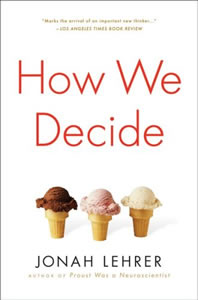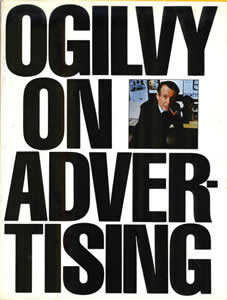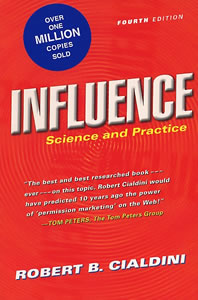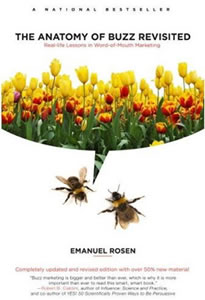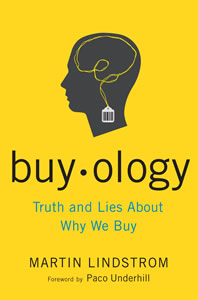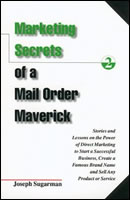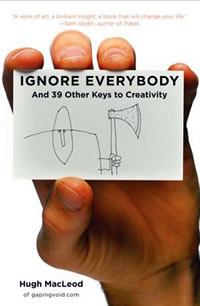 I first heard about Hugh MacLeod from Seth Godin. Seth wrote a story about an advertising executive who prolifically doodled original artwork onto the backs of his business cards (while commuting by train) and gave them away to people he met. The cards became a “calling card” for him – he got noticed. Today his website (Gaping Void) gets over 2 million unique visitors. Cost? His creative time.
I first heard about Hugh MacLeod from Seth Godin. Seth wrote a story about an advertising executive who prolifically doodled original artwork onto the backs of his business cards (while commuting by train) and gave them away to people he met. The cards became a “calling card” for him – he got noticed. Today his website (Gaping Void) gets over 2 million unique visitors. Cost? His creative time.
Hugh’s book is a little bit of card gallery, and a bit of personal insights about his search for (business) creativity. He graciously posted the first 30% of the book on his website to see the content for yourself.
The key point of the book is that you should do something that’s important to you creatively not because you’ll make money, not because you’ll become famous, but because it’s who you authentically are. If you’re thinking of starting a business that leverages your creativity (art, writing, advertising, computer programming, etc.) don’t quit your day job. Having the security of income (what he calls “Cash”) allows you to play with creativity (“Sex”).
Everybody is creative – but not everybody has given themselves the opportunity to rekindle their creative spark. Start today. Stop complaining and try something. Don’t focus on the outcome – revel in the process. And someday, sometime, somehow maybe that spark will ignite your life.
Bonus: Hugh also created poster version of the key points of the book:

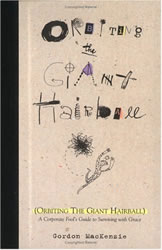 Aside: Another wonderful (and definitely recommended) book on business and creativity is: Orbiting the Giant Hairball: A Corporate Fool’s Guide to Surviving with Grace (Gordon MacKenzie).
Aside: Another wonderful (and definitely recommended) book on business and creativity is: Orbiting the Giant Hairball: A Corporate Fool’s Guide to Surviving with Grace (Gordon MacKenzie).
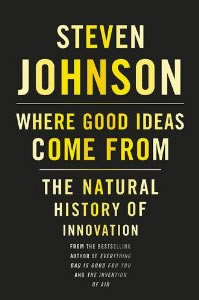 Steven Johnson examines a wide number of inventions that have arisen over a large period of time and attempts to determine (where possible) how exactly did the invention arise. His findings show that good ideas seldom arose from the workbench of a solitary thinker/inventor but more likely from a person who actively networks with a wide variety of peers.
Steven Johnson examines a wide number of inventions that have arisen over a large period of time and attempts to determine (where possible) how exactly did the invention arise. His findings show that good ideas seldom arose from the workbench of a solitary thinker/inventor but more likely from a person who actively networks with a wide variety of peers.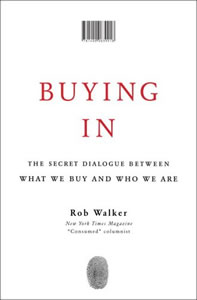 Subtitled “The Secret Dialogue Between What We Buy And Who We Are“, this book attempts to answer the branding question: Why should someone buy my product? People place a value on a product based on how owning it makes them feel/seem. It’s part status and part comfort. This book shows why this isn’t quite correct.
Subtitled “The Secret Dialogue Between What We Buy And Who We Are“, this book attempts to answer the branding question: Why should someone buy my product? People place a value on a product based on how owning it makes them feel/seem. It’s part status and part comfort. This book shows why this isn’t quite correct.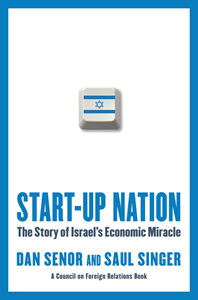 “The Story Of Israel’s Economic Miracle” can also become the story of how to launch/wildly succeed your own business. Dan Senor & Saul Singer answer the question, “How does a country of 7.1 million – surrounded by enemies, in a constant state of war since its founding, and with no natural resources – produce more start-up companies than large, peaceful, and stable nations like Japan, China, India, Korea, Canada and the UK?”
“The Story Of Israel’s Economic Miracle” can also become the story of how to launch/wildly succeed your own business. Dan Senor & Saul Singer answer the question, “How does a country of 7.1 million – surrounded by enemies, in a constant state of war since its founding, and with no natural resources – produce more start-up companies than large, peaceful, and stable nations like Japan, China, India, Korea, Canada and the UK?”